Search
Search Results

Definition
Homo Habilis
Homo habilis ("handy man") is an extinct species of human that lived in East and South Africa between 2.3 and 1.5 million years ago and plays an interesting role in the discussion surrounding the dawn of our genus of Homo, which is thought...
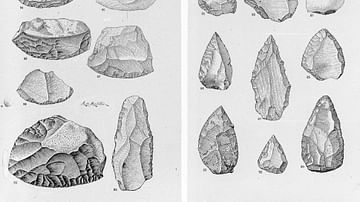
Image
Drawings of Middle Palaeolithic Tools: Points & Scrapers
Drawings of stone tools belonging to the Middle Palaeolithic (sometimes called 'Mousterian') industries, found from Europe and the Near East to Africa between approximately 250,000 and 30,000 years ago. It is associated with archaic homo...
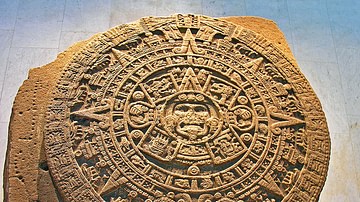
Definition
Sun Stone
The Aztec Sun Stone (or Calendar Stone) depicts the five consecutive worlds of the sun from Aztec mythology. The stone is not, therefore, in any sense a functioning calendar, but rather it is an elaborately carved solar disk, which for the...

Definition
Paleolithic
The Palaeolithic ('Old Stone Age') makes up the earliest chunk of the Stone Age – the large swathe of time during which hominins used stone to make tools – and ranges from the first known tool use roughly 2,6 million years ago to the end...
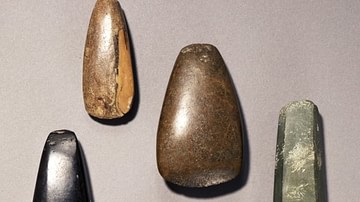
Image
Jomon tools
Group of polished stone tools from the Jomon Period.

Image
Medieval Carpenters' Tools
A board showing the carpentry tools commonly used in the Middle Ages in Europe. On display at Guédelon castle in Treigny, Burgundy, France.
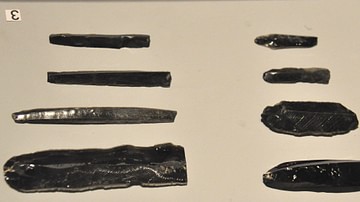
Image
Obsidian Tools
These tool were probably used for cutting and chopping. Obsidian is a naturally occurring volcanic glass and is not local to Mesopotamia. It was most likely imported from modern Afghanistan. These tools were found at Tell Shemshara (modern...
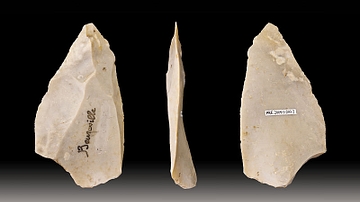
Image
Neanderthal Tools - Levallois Point
A Levallois point flint tool from the Mousterian lithic industry, made by Neanderthals. It was discovered in Beuzeville, France and is on display at the museum of Toulouse, France.
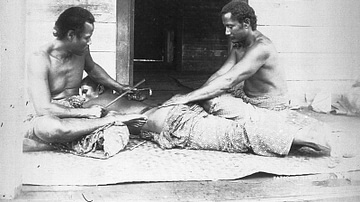
Image
Samoan Tattooist Using Traditional Tools
A Samoan tattooist using the traditional tools to place a tatau (tattoo) on a man's back. The methods and tools were also used in New Zealand by the Maori. This photograph was taken c. 1895 CE by Thomas Andrew (1855-1939 CE).
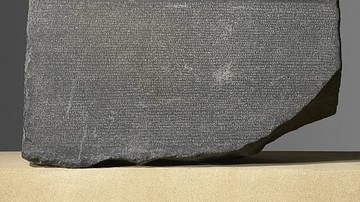
Definition
Rosetta Stone
The Rosetta Stone is an incomplete grey and pink granodiorite stela dating from 196 BCE which presents a priestly decree concerning King Ptolemy V of Egypt. The text is in three different versions: Hieroglyphic, Demotic and Greek, a fact...